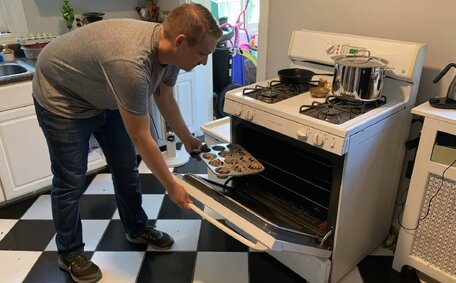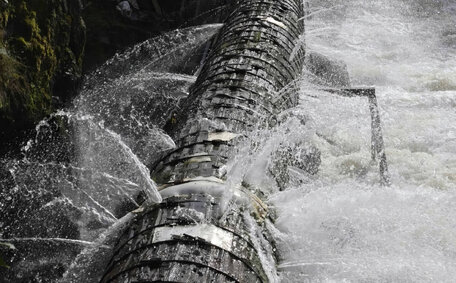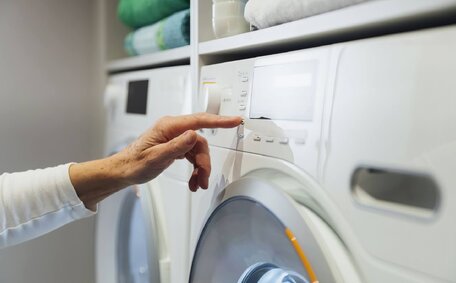Recognizing Signs of a Gas Leak
Early detection of a gas leak is critical for safety. Watch for any indicators of a leaking gas line on your premises:
- A noticeable sulphur-like scent, added to natural gas for easy detection of leaks
- Hissing or whistling sounds coming from gas appliances or pipes
- Patchiness in vegetation or areas of dead plants over where gas lines run
- Visible damage like cracks or leaks in external gas pipes
- Gas bills that are higher than usual, which may indicate undetected leaks
If you notice any of these warning signs, take action immediately. Evacuate the area, cut off gas supply if safe to do so, call 000 from a safe location, and do not re-enter until professionals have resolved the issue. Attempting DIY repairs on gas lines is extremely dangerous and can lead to explosions, poisoning, fires and more.
Safety Protocols When a Gas Leak is Suspected
If you suspect a gas leak in your property, safety should always be your paramount concern. Follow these protocols immediately:
- Promptly evacuate all occupants and pets, leaving doors open for ventilation
- Avoid using any phones, electronics, appliances or lighting inside — even a tiny spark can ignite leaking gas
- Contact emergency services by dialling 000 to report the gas leak from a safe distance
- Do not re-enter the premises until emergency crews and qualified gas technicians confirm it is safe
- Do not try to locate or repair the leak yourself under any circumstances
- Switch off the gas valve at your property’s main meter outside; ensure it is readily accessible without re-entering the home
- For propane tank systems, shut off the main gas valve and all valves on the tank and appliances to secure your home
- Inform your local gas company/supplier when the leak has been resolved before restoring service
Gas leaks present serious fire risks and can endanger your health. Always engage licensed professionals to address gas leaks; do not attempt repairs yourself.
Common Causes of Gas Line Leaks and Failures
Gas lines may deteriorate or suffer damage from various causes, making professional inspections essential. Common reasons for gas line issues are:
- Corrosion: Over time, the insides of metal pipes may corrode, weakening the infrastructure and allowing gas that can be hazardous to escape.
- Physical damage: Accidental impacts during construction or landscaping can crack pipes or loosen joints.
- Soil movement: Natural ground settling or seismic events can alter pipe positioning, resulting in loose connections.
- Freezing temperatures: In cold climates, freezing and thawing cycles can expand and contract pipes.
- Ageing: Natural deterioration of older gas lines from years of service.
- Tree roots: Roots penetrating underground pipes seeking water can cause blockages or leaks.
Irrespective of the cause of your property’s gas leak, only licensed professionals can safely identify the source and make code-compliant repairs. Avoid DIY fixes on gas leaks to ensure your safety.
The Gas Line Repair Process
When you need gas line repair, it involves careful, methodical steps to locate the issue and restore safe functionality. Repairs could take a structured approach like this general process:
- When fixing the issue, after evacuating and shutting off the gas supply, professional technicians use specialised equipment to pinpoint and seal leaking points.
- Technicians assess the need for material and infrastructure repairs to fix leaks effectively.
- If a section of pipe needs replacement, the damaged parts are removed and replaced with new piping per code.
- For small cracks or loose fittings, epoxy sealants are often used to seal the leak points.
- Once repairs are complete, the entire system is pressure tested with non-hazardous gases to ensure no further leaks exist.
- Finally, gas service is restored once technicians verify safety, and appliances are relit as needed.
Owing to the risks, it’s imperative that only licensed professionals with the correct equipment and materials undertake all repairs.
When Professional Assistance is Required
Gas line repairs can be extremely hazardous without the requisite qualifications. Only licensed professionals have the skills and tools to safely examine, diagnose, and mend gas line problems in compliance with local rules.
There are significant risks with DIY repairs or unqualified technicians working on your gas lines, including:
- Improper materials or inadequate repairs leading to dangerous issues with your gas line
- Failure to address the root cause due to lack of training and diagnostic tools
- Non-compliance with safety codes, permitting laws and gas fitting licencing
- Voided home insurance policies if work carried out by unlicensed individuals is uncovered
- Further damage to gas infrastructure from unskilled handling
Trained and certified gas technicians handle gas leak repairs securely, having access to top-quality materials, leak detection equipment, and the know-how to reinstate gas systems safely according to local building codes.
Entrust any gas line concerns to our fully certified and insured gas fitters. Our qualifications and dedication ensure your gas system is repaired effectively and your family’s safety is prioritised.
Preventative Maintenance for Gas Lines
Proactively maintaining your gas systems is crucial to prevent leaks future occurrences and ensure safe, reliable performance. Follow these preventative measures:
- Have gas lines inspected annually by qualified technicians who can detect any signs of wear using precision leak detection equipment.
- Install carbon monoxide detectors for an extra layer of protection against a potential gas leak in your home, especially if you have gas hot water systems.
- Have professionals service gas appliances, including your water heater, per the manufacturer’s schedule to keep everything in good working order.
- Replace older gas line infrastructure after 15-20 years as preventative maintenance to avoid age-related failures.
- Keep the gas meter and external gas pipes protected from physical harm from vehicles, construction equipment, tree roots, etc.
- Sudden hikes in gas bills may signal a leak needing a technician’s evaluation.
If you detect rotten egg odours, more dust around pipes, hissing sounds, visible corrosion or cracks, or dead plants, promptly call certified gas technicians for an inspection.
Making gas line maintenance a regular priority can help avoid catastrophic failures, gas leaks, and costly emergency repairs down the road while keeping your home safe.
Understanding Insurance Coverage for Gas Line Issues
When it comes to insurance coverage for a line leak, there are a few key things homeowners should understand.
Standard home insurance policies generally provide coverage if a leaking gas line your house suffers from causes explosion damage to your home or belongings. Typically, policies do not cover the cost of finding and mending the leak itself. Repiping gas lines due to wear and tear is also often excluded.
Damages from an uninsured gas leak repair could void your entire policy if unlicensed work is discovered. Always use licenced professionals.
Coverage also varies by insurer, so check with your provider about the specifics of your policy. Ask questions such as:
- Does my policy cover repairs for gas pipe leaks?
- Am I covered for water or smoke damage from a gas explosion?
- Should I consider extra coverage specific to gas lines?
Fully comprehending your home insurance policy could prevent considerable expenses from gas line repairs or related damages. Discuss with your insurer to secure the best coverage.






